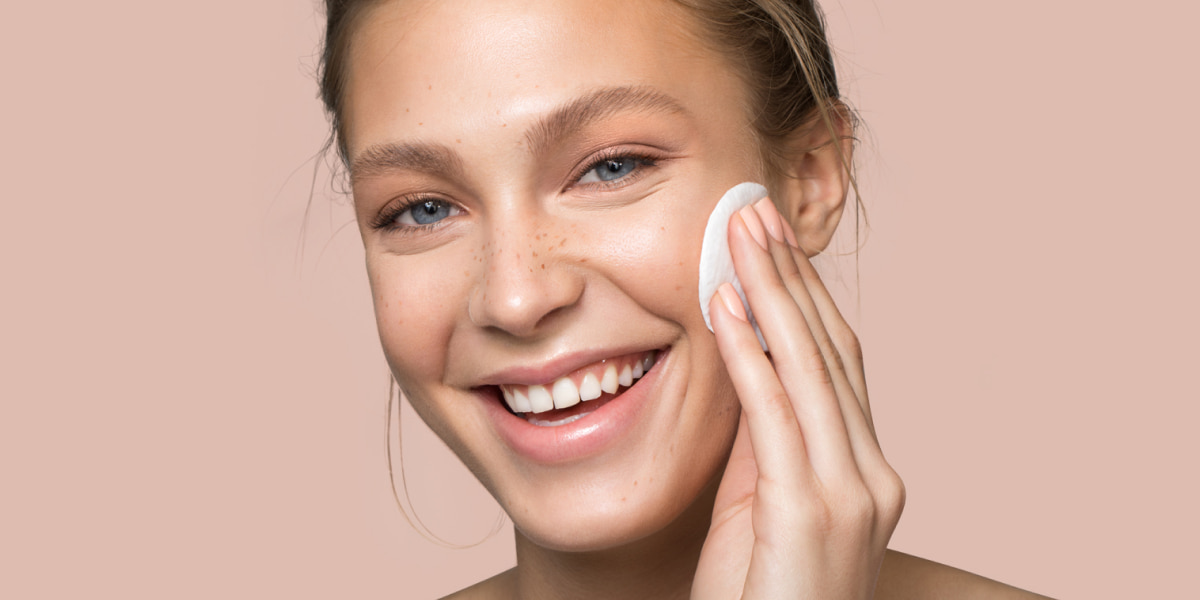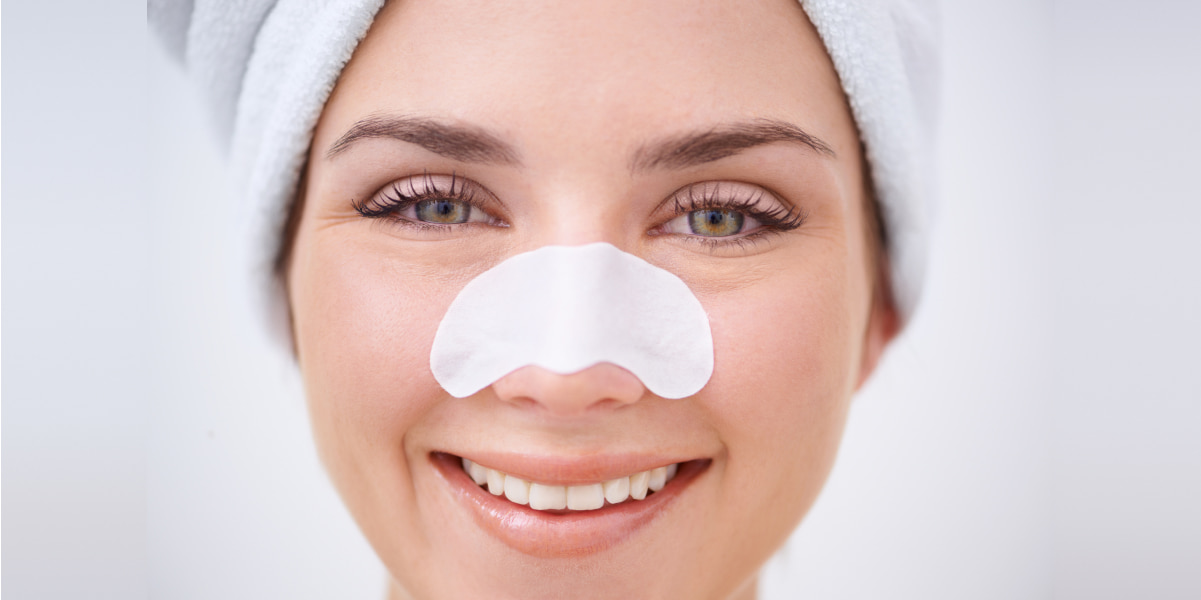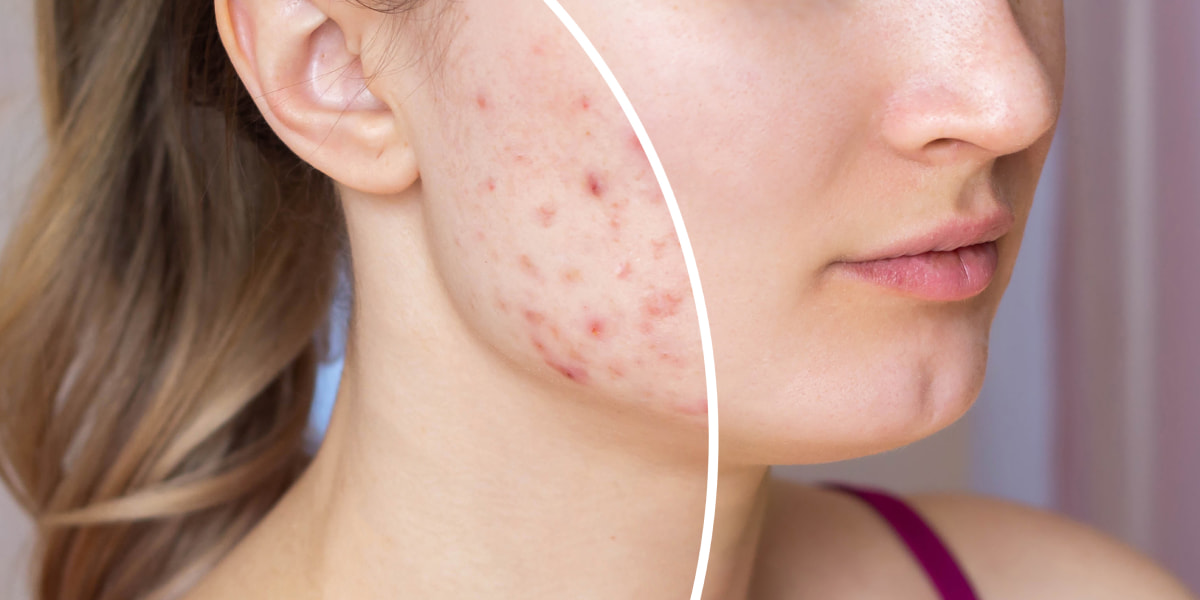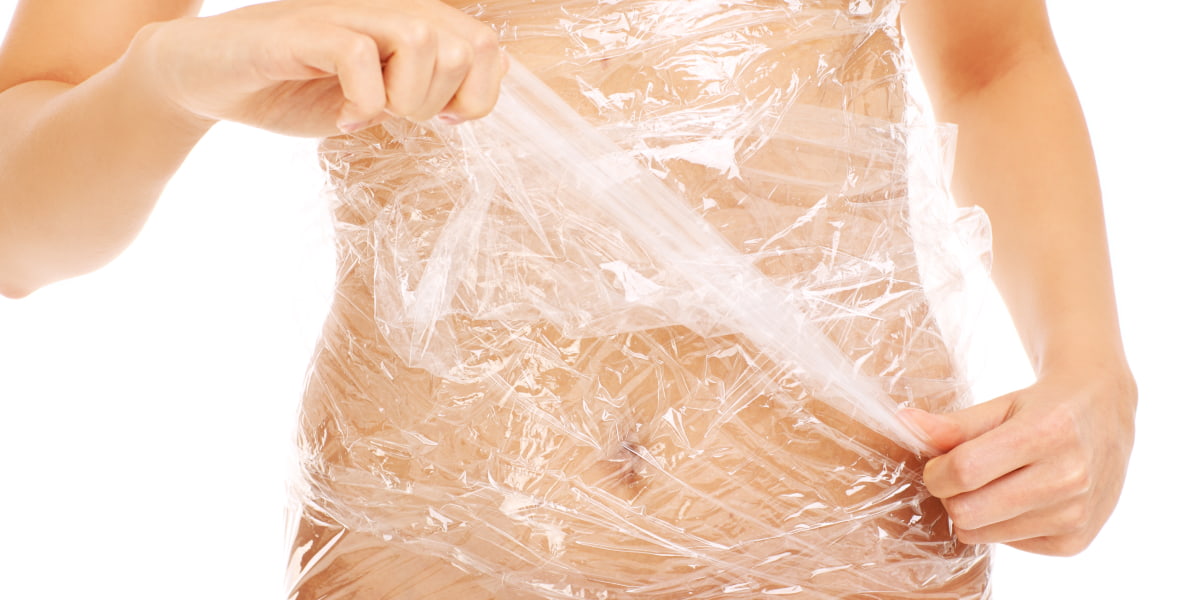Published on September 6th, 2022
Last updated on January 25th, 2023
What Does Ice Do To Your Face? Guide To Ice Therapy For Face
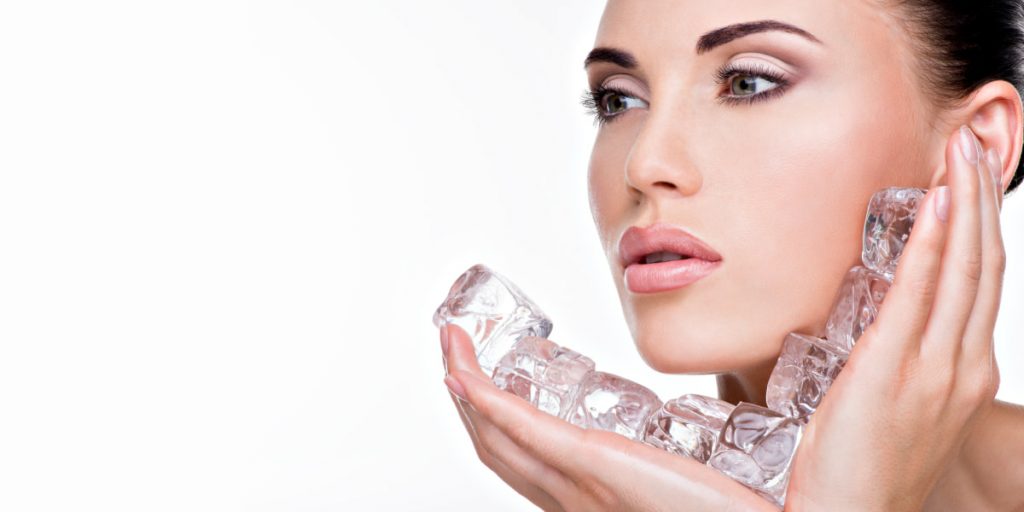
Many of us would like to have velvety and fresh skin. However, not everyone knows how to achieve this effect correctly. There are many methods by which you can moisturize the skin of the face, get rid of inflammation, and simply improve its appearance.
However, not all methods are economical, efficient, and easy to use. Skincare is all about using the right ingredients to achieve the desired outcome. So, one way to improve the condition of your face can be regular ice therapy. When it comes to anti-aging, ice is often overlooked as an option. However, it has many advantages and can carry some negative consequences.
How To Use An Ice Pack On Face?
For the most part, you can use ice with your face the same way you would on other parts of your body. However, there are a few things to keep in mind when using ice on your face:
- Do not put ice directly on your skin. Wrap the ice in a thin towel or cloth first;
- Do not leave the ice on your face for more than a few minutes;
- Be careful not to overdo it. Ice can cause frostbite if used excessively.
Ice can help reduce swelling, redness, and inflammation of the skin. It can also help numb pain and relieve itchiness. When having a cold, sore, or pimple, applying ice can help to reduce its size and duration.
If you have sensitive skin, it is essential to test the ice on a small area of your face before applying it over a larger area. Be sure to stop using ice, if you experience pain or any other sufficient discomfort.
Ice can be a helpful tool in your skincare routine when used correctly. It can help improve your skin’s appearance and relieve various conditions. However, it is important to use ice safely and sparingly, as excessive use can cause damage to the skin.
What Face Parts Ice Massage Can Be Applied On?
The circular massage can be performed a few times every day on your:
- Jawline;
- Chin;
- Lips;
- Nose;
- Cheeks;
- Forehead.
Before freezing ice for your face therapy, you must ensure that your freezer is clean and that no harmful or dirty components can get into your ice. The best option would be to put the liquid in a silicone ice pack and close it on both sides. Also, ensure the ice container is completely clean, as the ice will interact directly with your skin. And your task is to improve the skin’s condition and not harm it.
Also, before direct use, ensure that your skin is clean and the area where you will apply ice is not injured.
Benefits Of Ice Therapy For A Face
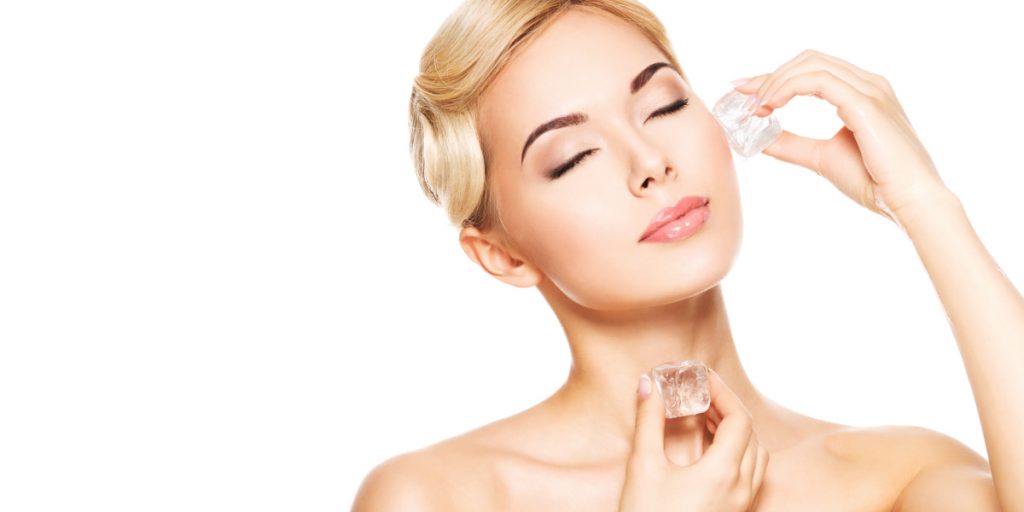
Ice can offer a variety of benefits for the face. When applied to the skin, ice can:
- Reduce inflammation;
- Numb pain;
- Improve circulation;
- Help to reduce the size of pimples and cold sores;
- Relieve itchiness;
- Improve the appearance of the skin by reducing redness and swelling.
Drawbacks Of Ice For Your Face
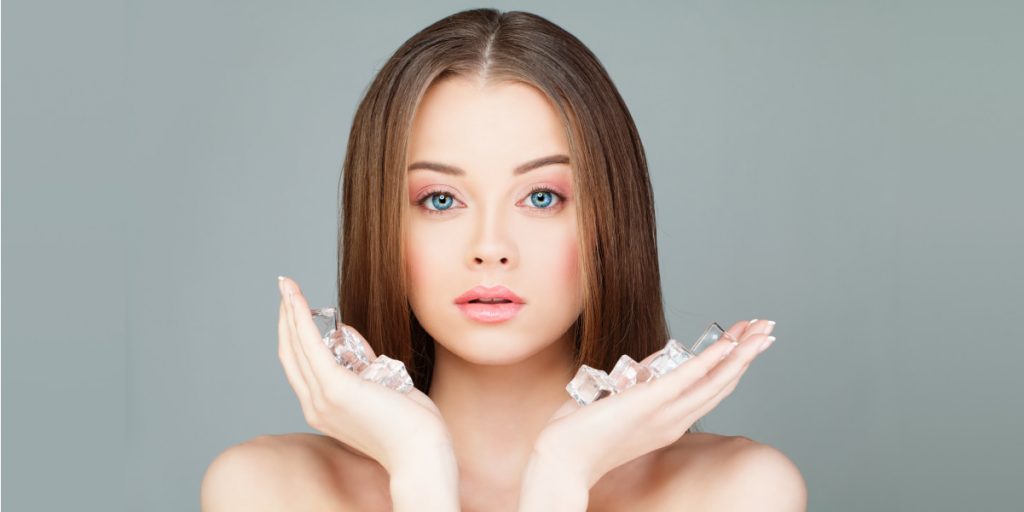
While ice can offer many benefits for the face, there are also some potential drawbacks. When used excessively or incorrectly, ice can:
- Cause frostbite;
- Damage the skin;
- Worsen inflammation;
- Increase redness and swelling.
From this, we can conclude that ice therapy can both benefit and negatively affect your skin. To ensure that your skin type is fully compatible with this type of therapy, you should first consult your dermatologist, as only they will be able to professionally help you with your problem and not harm your skin.
What Should Ice For A Face Consist Of?
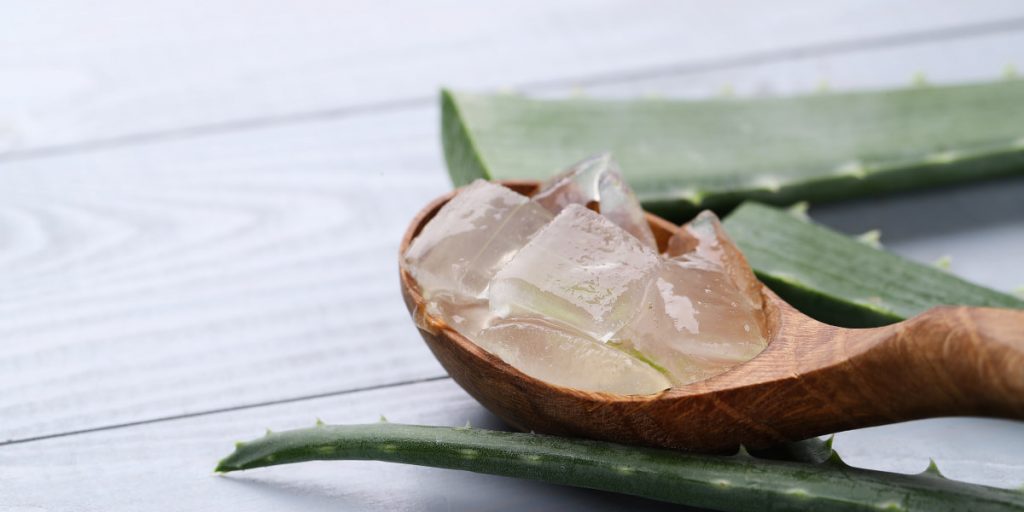
Some advocates of natural healing suggest replacing the water in your ice cubes with other ingredients, such as aloe vera and green tea. Anecdotal evidence suggests that ice cubes made with these ingredients can fine-tune the facial treatment for specific conditions:
- Aloe for skin icing. In the natural health community, aloe vera is used for many skin conditions. However, the National Center for Complementary and Integrative Health says there’s no sufficient scientific evidence to support aloe for healing wounds or any of its other popular uses. Anecdotal evidence suggests frozen aloe maintains its healing powers and can soothe sunburn and acne. Proponents of this practice say that if you don’t have frozen aloe, you can apply aloe gel to your skin before doing your regular ice facial;
- Green tea ice. Some studies, including one from 2013 published in the British Journal of Pharmacology, suggest that the catechins in green tea are antiviral and antibacterial. Advocates of ice facials suggest that ice cubes made from green tea can combine the benefits of ice on your face with the virus- and bacteria-killing properties.
Bottom Line
As a result, there is no definitive answer to the skin icing issue, as the effects of ice on your face can vary depending on your skin type and the reasons why you are using ice in the first place.
However, some potential benefits of using an ice pack on your face include reducing inflammation, swelling, and redness. Additionally, ice can help numb pain and soothe irritated skin. If you are considering using ice therapy on your face, it is always best to speak to a healthcare professional beforehand to ensure that it is the proper treatment.
FAQ
What Does Ice Do To Your Face?
Ice is an effective skincare treatment because it reduces inflammation and redness and tightens the skin. For decades, many cultures have used icing to tighten skin and make it better.
Who Specializes In Face Care?
You can get help regarding facial skin by contacting a beauty salon and using the services of a beautician. A dermatologist can also deal with skin problems and provide all the necessary assistance.
How Long Do I Need To Take Care Of My Face?
Unfortunately, your skin needs regular care. Therefore, for the skin to be fresh, velvety, and young, you must regularly apply masks, wash, moisturize and cleanse your face.
What Inproper Face Care May Cause?
If you stop caring for your face, your skin condition will deteriorate, and blackheads, pimples, and other unpleasant skin problems will appear.


